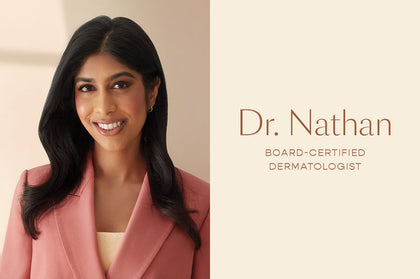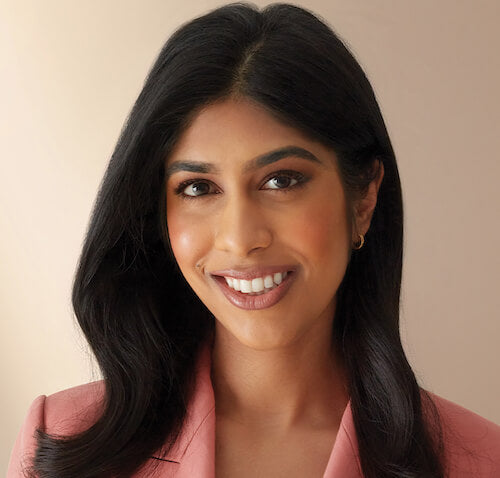Dr. Neera Nathan, MD, MSHS, is a board-certified dermatologist and VEGAMOUR expert. Every month, the Harvard-trained doctor shares the science behind and potential solutions to topics such as hair loss, hair growth, scalp care and graying. Read all of Dr. Nathan's articles here.
Postpartum hair loss (a form of telogen effluvium) is common and affects many women after giving birth. Here are the hair changes you can expect during your pregnancy and through the postpartum stages.
During Pregnancy
Changes in hormone levels (particularly estrogen) can stimulate hair to stay in the growth phase, or anagen, for longer. This can lead to longer, thicker hair during pregnancy, which may be most noticeable during the second and third trimester. You may also notice more body hair growth during this time.
Immediately Postpartum
Estrogen levels and pregnancy hormones drop soon after giving birth, which causes a large portion of hair strands to shift from the growth phase into the resting phase (telogen). Hair fall/shedding does not occur quite yet.
3-4 Months Postpartum
As the hair follicles reach the end of the resting phase, they begin to fall/shed at the same time. This is when postpartum hair loss first becomes noticeable. You may notice more hair fall than usual or clumps of hair in your brush or in the shower drain. Your hair may become thinner all over or near the temples. It is possible to lose up to 50% or more of your hair over the next few months, but you shouldn’t go completely bald.
6-12 Months Postpartum
Hair slowly stops shedding and starts to regrow. Hair should grow back to its normal fullness and thickness by 12 months postpartum.
12 Months Postpartum and Beyond
Hair should be back to normal. If your hair has not reached its previous thickness by your child’s first birthday, there may be another trigger causing hair loss. I recommend seeking care from a board-certified dermatologist for diagnosis and treatment.
Can Postpartum Hair Loss Be Treated?
The good news is that postpartum hair loss should improve on its own. Once hairs are in the shedding phase, it’s hard to stop the process, but there are things you can do to help support healthy hair growth. Avoid using excessive heat on your hair; instead of hot tools, try blow drying on the lowest setting about 6 inches away from your head. Avoid tight hairstyles and coloring or chemical straightening treatments. Eating a healthy, protein-rich diet is also important to grow healthy, strong hair. Using products that can soothe the scalp and stimulate the hair growth phase, like topical caffeine, could help, too. If you are breastfeeding, it is best to speak with your doctor before starting any new products.
Back


















